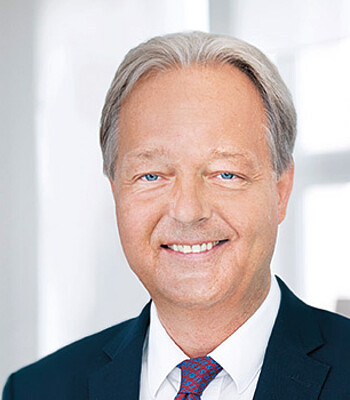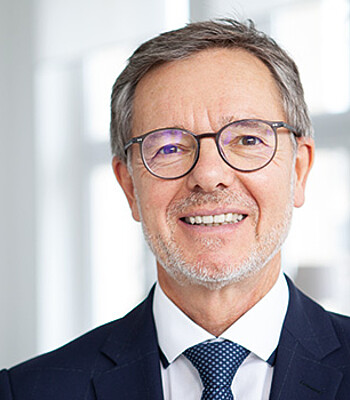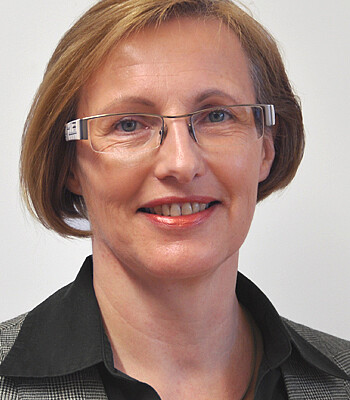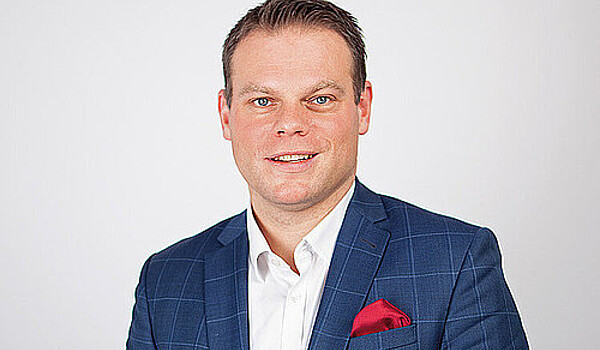Ce reprezinta, de fapt, BestBoss?
BestBoss este un acronim. Reprezinta abrevierea pentru „Procedura de evaluare pentru succesorii din IMM in Industria turismului”. Acesta este un proiect din cadrul programului Erasmus + , program al Uniunii Europene. Proiectul evidentiaza nivelul de dezvoltare, la nivel european, al conceptelor si experientei succesorilor din IMM-uri. Sunt generate modele de evaluare, care reflecta punerea în aplicare a noilor reglementari pentru succesorii in IMM-urile din turism.
Aceasta conduce la crearea unui nou tip de parteneriat intre intreprinderi si institutii de invatamant superior (IIS), cum ar fi universitatile din acest proiect. Acestea detin potentialul si know-how-ul de a dezvolta si de a implementa procedurile de evaluare pentru succesorii din IMM si conceptele de dezvoltare a resurselor umane. In prezent, nu exista o cooperare adecvata intre universitati si mediul de afaceri, dar nici o constientizare generala sau orice posibilitati reale de furnizare catre piata si catre intreprinderi a know-how –ului privind procedurile de succesiune. Asadar, acestea sunt aspectele cheie in cadrul proiectului, care urmareste rezolvarea acestei situatii, prin conectarea celor doua categorii de stakeholderi.
De ce facem asta?
In Europa si alte continente, turismul reprezinta una dintre cele mai vaste industrii si joaca un rol important in economia nationala. Astfel, sectorul turistic poate crea 100.000 de locuri noi de munca pe an. Cu toate acestera, turismul este deseori conceput ca una dintre singurele optiuni economice pentru regiunile mai putin dezvoltate. In 2013, industria turismului din Germania, de exemplu, s-a extins cu 9% in regiunile mai putin dezvoltate, precum Brandenburg sau Mecklenburg Western Pomerania.
Mai mult, turismul este incorporat in structuri complexe, evolutii multidimensionale si mediu de afaceri stabilite de transformările globale. Dar, în prezent, turismul european se afla in crestere cu o rata medie mai scazuta decat cea mondiala. In viitor, se asteapta sa-si piarda locul de lider mondial, cedand în fata Asiei si a SUA.
De altfel, am identificat faptul ca personalul activ din acest sector se confrunta cu salarii mici, iar o parte chiar cu conditii de munca improprii, cu fluctuatia personalului, munca la negru, dar si cu insuficienta unei infrastructuri turistice. Toate aceste aspecte indica faptul ca in prezent exista carente perceptibile referitoare la forta de munca specializata in turism si, in special, in ceea ce priveste succesorii din IMM.
Intreprinderile care opereaza in acest sector au nevoie sa cunoasca aceste circumstante. Companiile care opereaza in acest sector trebuie sa inteleaga anumite aspecte cu privire la aceste circumstante:
- Trebuie sa inteleaga ca turismul a devenit o afacere globala cu un numar incomensurabil de stakeholderi si cu factori externi, reprezentand diferite interese, perspective, cereri si nevoi.
- In acelasi timp, turismul este dependent de numerosi factori externi, precum dezvoltarea economica, schimbarile demografice, ecologice, educationale si cele referitoare la politicile privind piata muncii etc., care sunt dificil de previzionat sau de influentat.
- In acest context, turismul este confruntat cu numeroase riscuri si este nevoie de un bagaj consistent de know-how, pentru a performa cu succes pe termen lung - aceasta problema este mult prea des subestimata sau, pur ai simplu, ignorata.
IMM-urile europene din industria turismului au urgent nevoie de suport profesional cu privire la „Procedura de evaluare pentru succesorii din IMM in Industria turismului” – iar aceasta reprezinta subiectul si cadrul de lucru ale proiectului, alaturi de conceptele de dezvoltare a resurselor umane.
Despre ce este vorba in proiectul BestBoss?
In derularea proiectului BestBoss, avem in vedere testarea si dezvoltarea modelului de evaluare ca studiu de caz, pentru consultarea companiilor cu privire la perceptia acestora in evaluarea succesiunii.
- In acest context vom elabora ghidul BestBoss, standarde de calitate, precum si recomandari privind succesiunea la conducerea IMM-urilor din industria turismului.
- Cercetarea care sta la baza training-ului pentru Modelul de evaluare BestBoss si procedurile pentru succesiunea in IMM-urile din turism vor fi publicate, dupa terminarea proiectului.
- Nu in cele din urma, vom publica directiile strategice BestBoss, care vor determina constientizarea nivelului coborat de evaluare, de traditii si de standarde privind succesiunea la nivel European.
- Prin aceasta lucrare dorim sa impartasim cu ceilalti experienta si constatarile noastre si, cel mai important, dorim sa initiem dezvoltari si schimbari vitale pentru mai bune standarde psihologice, economice si politice in intreaga Europa.
Care este rolul IMM-urilor in acest proiect?
BestBoss depinde de cooperarea dintre universitati si intreprinderile mici și mijlocii, din moment ce modelul de evaluare prinde viata in economia reala – el nu trebuie sa ramana doar un concept teoretic! De aceea, retelele europene de stakeholderi au un rol semnificativ. Acestea asigura aspectele practice necesare si schimbul de experienta pentru dezvoltarea modelelor de evaluare adecvate.
Industria turistica europeana va fi sustinuta durabil pentru a face fata schimbarilor demografice. Astfel, in acest proiect sunt concentrate modele de evaluare inovative si adaptabile, reflectand diversitatea intreprinderilor, resursele umane si diferentierile pe piata turistica, în contextul unui cadru de lucru stiintific.
Care sunt beneficiile pentru intreprinderi, in urma implicarii in acest proiect?
Prin proiectul european BestBoss, IMM-urilor le sunt oferite mai multe posibilitati de a structura procesul de luare a deciziilor in planificarea resurselor umane si a succesiunii in intreprindere.
Rezultatele proiectului BestBoss se bazeaza pe cercetare stiintifica si prind viata atunci cand sunt utilizate în economia reala. Proiectul BestBoss ofera un sistem de masurare sigur si unic, care structureaza toate deciziile necesare referitoare la succesorii din IMM-uri. Caracteristica speciala este individualitatea. Fiecare intreprindere din turism poate ajusta acest instrument in conformitate cu cerintele sale individuale. In plus, modelul de evaluare identifica punctele forte si punctele slabe ale potentialilor succesori si le compara cu profilul de competenta al succesorului, dezvoltat in proiectul BestBoss, pe baza opiniilor actuale ale liderilor din IMM-urile turistice. In acest fel, cerintele de modificare devin clare si pot fi implementate cu usurinta (de exemplu, prin formare continua a adultilor sau prin continuarea studiilor). Deci, in cele din urma: IMM-urile din turism vor gasi mai usor succesorii potriviti pentru compania lor.
Cine este implicat în acest proiect?
In total, opt parteneri din sapte tari europene formeaza o echipa interdisciplinara. Desi partenerii au abordari si perspective diferite cu privire la scopul si obiectivele proiectului BestBoss, acestia sunt strans legati de o ințelegere comuna: au realizat nevoia de a depasi cat mai repede situatia destul de daunatoare a procedurilor imcomplete, cu care se confrunta, in prezent, intreg sectorul turistic. Toti partenerii provin din zone in care industria turismului se concentreaza, din ce in ce mai mult, pe succesori. Astfel – conceptele, infrastructura si serviciile trebuie reconsiderate in urmatorii ani. Exista o cerere reala in intreprinderile din toate tarile partenere de a invata mai multe cu privire la modul in care se vor dezvolta procedurile de evaluare pentru succesorii din IMM in industria turismului.
Patru universitati, responsabile pentru abordarile privind cercetarea stiintifica in acest proiect si patru stakeholderi, care reprezinta nevoile companiilor de a combina cunostintele acestora pentru a face fata provocarilor:
- Austria: European Network for Transfer and Exploitation of EU-Project Results (E.N.T.E.R.)
- Belgia: ViaVia Tourism Academy
- Bulgaria: Chamber of Commerce and Industry – Dobrich
- Germania: FHM Schwerin - University of Applied Sciences
- Germania: mbi Mecklenburger Bildungsinstitut GmbH
- Marea Britanie: Grwp Llandrillo Menai, Wales
- Romania: Academia de Studii Economice din Bucuresti
- Slovenia: University of Primorska, Faculty of Education






















